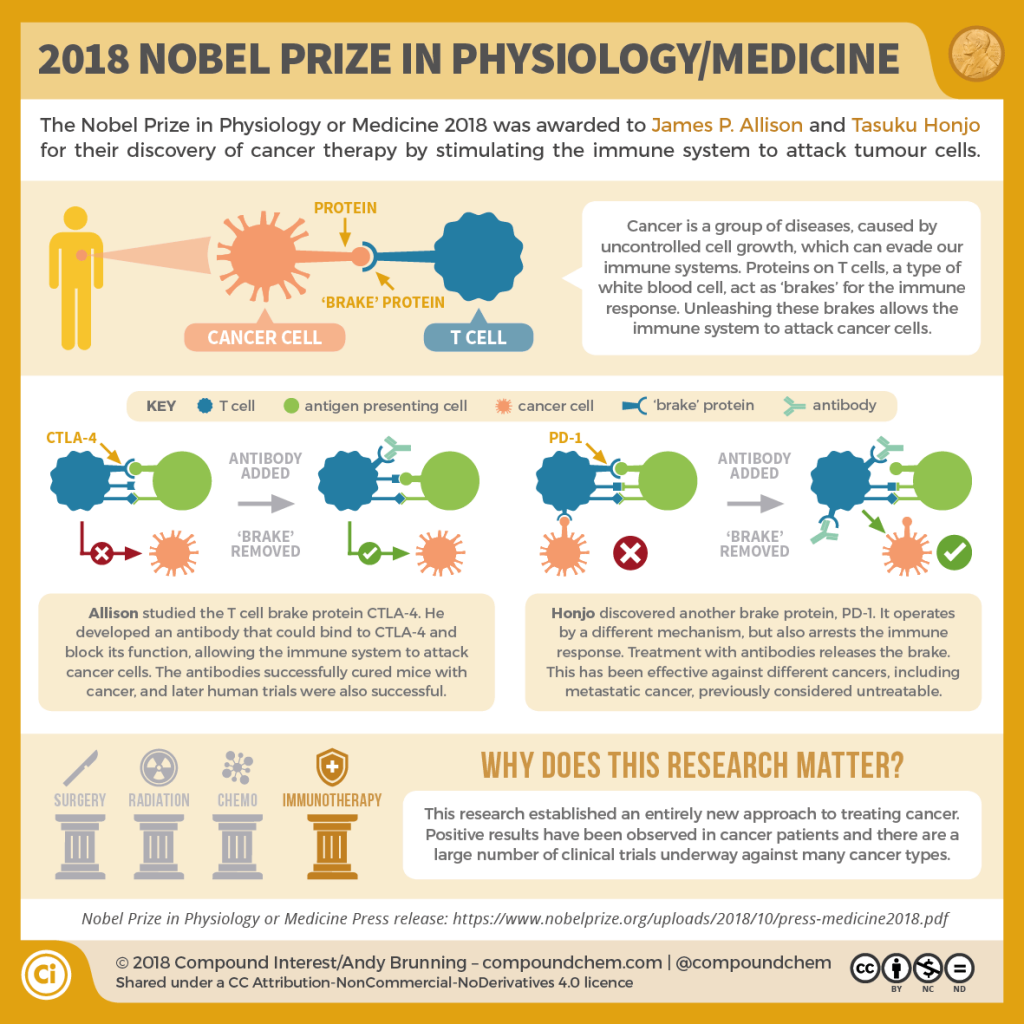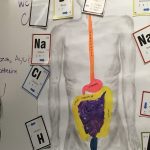Learn more about the 2018 Prize Research in Medicine and Physiology
“Cancer kills millions of people every year and is one of humanity’s greatest health challenges. By stimulating the inherent ability of our immune system to attack tumor cells this year’s Nobel Laureates have established an entirely new principle for cancer therapy.
James P. Allison studied a known protein that functions as a brake on the immune system. He realized the potential of releasing the brake and thereby unleashing our immune cells to attack tumors. He then developed this concept into a brand new approach for treating patients.
In parallel, Tasuku Honjo discovered a protein on immune cells and, after careful exploration of its function, eventually revealed that it also operates as a brake, but with a different mechanism of action. Therapies based on his discovery proved to be strikingly effective in the fight against cancer.
Allison and Honjo showed how different strategies for inhibiting the brakes on the immune system can be used in the treatment of cancer. The seminal discoveries by the two Laureates constitute a landmark in our fight against cancer.”
Figure: Upper left: Activation of T cells requires that the T-cell receptor binds to structures on other immune cells recognized as ”non-self”. A protein functioning as a T-cell accelerator is also required for T cell activation. CTLA- 4 functions as a brake on T cells that inhibits the function of the accelerator. Lower left: Antibodies (green) against CTLA-4 block the function of the brake leading to activation of T cells and attack on cancer cells.
Upper right: PD-1 is another T-cell brake that inhibits T-cell activation. Lower right: Antibodies against PD-1 inhibit the function of the brake leading to activation of T cells and highly efficient attack on cancer cells.




